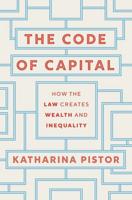Publisher's Synopsis
As congressional policymakers continue to debate telecommunications reform, a major point of contention is the question of whether action is needed to ensure unfettered access to the Internet. The move to place restrictions on the owners of the networks that compose and provide access to the Internet, to ensure equal access and non-discriminatory treatment, is referred to as "net neutrality." While there is no single accepted definition of "net neutrality," most agree that any such definition should include the general principles that owners of the networks that compose and provide access to the Internet should not control how consumers lawfully use that network, and they should not be able to discriminate against content provider access to that network. A major focus in the debate is concern over whether it is necessary for policymakers to take steps to ensure access to the Internet for content, services, and applications providers, as well as consumers, and if so, what these steps should be. Some policymakers contend that more specific regulatory guidelines may be necessary to protect the marketplace from potential abuses which could threaten the net neutrality concept. Others contend that existing laws and policies are sufficient to deal with potential anti-competitive behavior and that additional regulations would have negative effects on the expansion and future development of the Internet. The December 21, 2010, adoption, and November 20, 2011, implementation, by the Federal Communications Commission (FCC) of its Open Internet Order has focused attention on the issue. Although most concede that networks have always needed and will continue to need some management, the use of prioritization tools, such as deep packet inspection, as well as the initiation of metered/usage based billing practices have further fueled the debate. A consensus on the net neutrality issue has remained elusive and support for the FCC's Open Internet Order has been mixed. While some Members of Congress support the action, and in some cases would have supported an even stronger approach, others feel that the FCC has overstepped its authority and that the regulation of the Internet is not only unnecessary, but harmful. Internet regulation and the FCC's authority to implement such regulations has been a topic of legislation (H.R. 96, H.R. 166, S. 74, H.R. 2434, H.R. 1, H.R. 3630, H.J.Res. 37, and S.J.Res. 6 ) and hearings in the 112th Congress. The House, on April 8, 2011, passed (240-179) H.J.Res. 37, to state disapproval of and remove the force and effect of the FCC's Open Internet Order. However, an identical resolution of disapproval (S.J.Res. 6) failed to pass the Senate on November 10, 2011, by a 52-46 vote. Attempts to prohibit implementation through the appropriations process, by the withholding of FCC funds for such purposes, have also been unsuccessful. It is anticipated that the issue of Internet access will be of continued interest to policymakers. The net neutrality issue has also been narrowly addressed within the context of the American Recovery and Reinvestment Act of 2009 (ARRA, P.L. 111-5). Provisions required the National Telecommunications and Information Administration (NTIA), in consultation with the FCC, to establish "nondiscrimination and network interconnection obligations" as a requirement for grant participants in the Broadband Technology Opportunities Program (BTOP). These obligations were released, July 1, 2009, in conjunction with the issuance of a notice of funds availability soliciting applications. Recipients of these awards have been selected and continued congressional oversight is expected.










